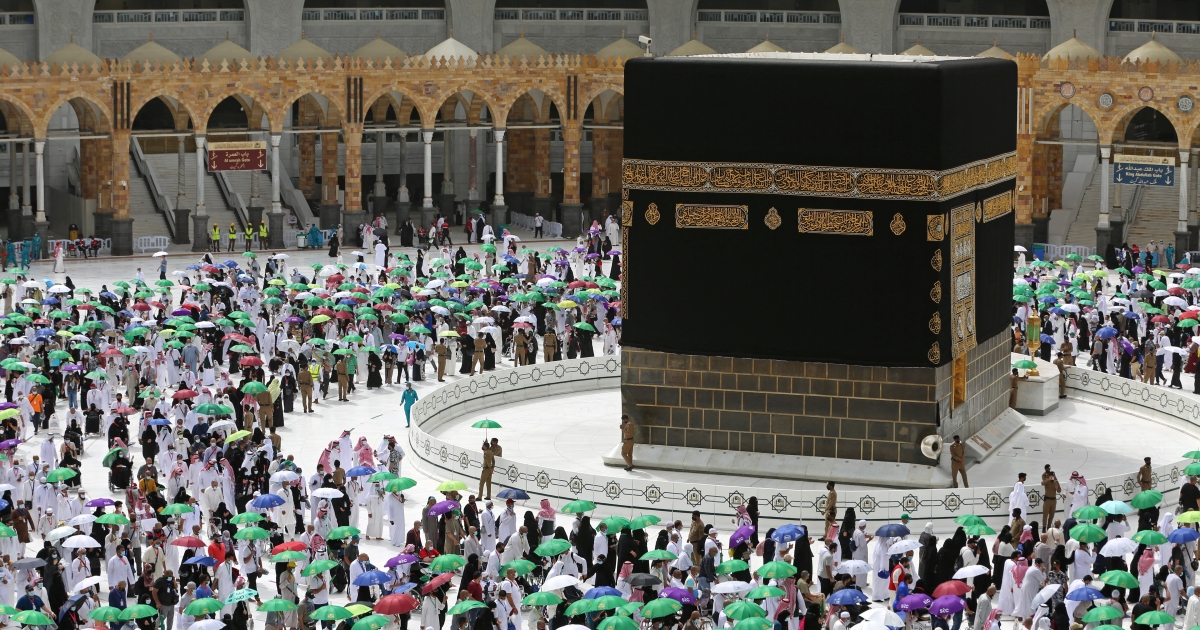
It was cruel Eid-ul-Azha for Pakistan’s highly discriminated Ahmedi or Ahmediyya community as members of the police force, to whom they could turn for protection, themselves desecrated 53 graves in Gujranwala on the eve of the festival.
Two graveyards were targeted. This was the fourth such case this year, the community leaders alleged, according to a report in The Friday Times (July 8, 2022). In Peshawar, the grave of an Ahmadi man was dug out and his remains were thrown out.
According to the press , on the night between July 6 and 7, Gujranwala police as well as some local citizens raided two graveyards in the Talwandi Khajurwali district of Gujranwala. It showed as evidence photos from the scene show headstones shattered and broken.
In February of this year, the Punjab Police desecrated almost 50 Ahmadi graves in Hafizabad, by removing plaques and destroying tombstones. There is no clear indication of the Ahmediyya population that is estimated to be the world’s largest residing in Pakistan. It is estimated at anything from 0.22 percent to 2.2 percent of the 220 million population.
In May this year, a 36-year-old Ahmadi man was stabbed to death by a Madrassa student in Okara. According to reports, the murderer was a member of Tehreek-e-Labbaik Pakistan (TLP), a Sunni militant body that is proscribed, but in talks with the government.
Earlier this year, a 70-year-old Ahmadi man who was on trial for blasphemy died in Bahawalpur Jail due to alleged mistreatment despite his ill health. He was awaiting his bail hearing scheduled for later this year.
Ahmediyyas were declared as non-Muslim under the law in 1974 in Pakistan. The Pakistani Constitution officially declares the Ahmadiyya sect of Islam to be “infidels” and bars members of the community from “posing as Muslims,” which the vandalized graves were found guilty of.
They are subjected to discrimination in all walks of life. Their schools, mosques and public events like wedding parties get frequently targeted. The Ahmadi community faces persecution in Pakistan, with frequent hate crimes and incidents of mob violence targeting them. Hate speech by extremist quarters against them leads to further violence, yet the authorities do not seem to have the will to protect the community from this persecution.
The community’s members cannot perform the Hajj in Saudi Arabia which is on this month, although some members surreptitiously do, at great risk.
Worse, since they are officially declared non-Muslim, they are game for not just the Islamist extremists, but also the government machinery. Mainstream political leaders cannot seem to refrain from dragging minorities in their speeches at rally, which ends up being linked to even more cases of hate crimes. Even lawmakers make speeches that go unchallenged by the government of the day.
Ahmadis also face mistreatment from the justice system, as many lose their lives while being tried for blasphemy, the British-era law that is used to target weaker sections among the minorities.
The community has suffered despite the fact that the first foreign minister of Pakistan, Sir Zafarullah Khan, was an Amediyya. The previous Imran Khan government desisted from appointing Dr Atif Miah, a prominent American university economist, as the Economic Advisor after Khan was severely criticised and warned.
The most glaring case has been of Dr Abdus Salam, the first Muslim and Pakistan’s only Nobel laureate. He was not allowed to return home. When he died in France, the tombstone was desecrated. It reads: “Professor Muhammad Abdus Salam, in 1979 became the first Nobel Laureate for his work in Physics.”






